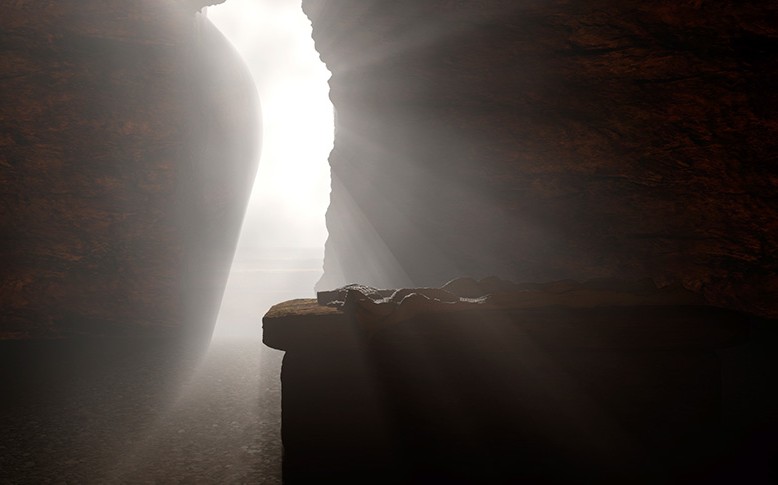Podcast: Play in new window | Download
Subscribe: Email | TuneIn | RSS | More
By: Brian Chilton, Ph.D., and Michelle Johnson, Ph.D. | November 30, 2023
S7E12 The Historicity of the Bible with Dr. Michelle Johnson on YouTube
S7E12 Historicity of the Bible
- How do we determine if something is historically sound?
- What factors prove the historicity of creation?
- Is there any evidence to prove the biblical story of the Flood?
- Do we have any historical reasons to believe in the existence of the patriarchs?
- What evidence do we have for the Exodus?
- Was King David a real historical person?
- What evidence do we have for the incarnation and existence of Jesus of Nazareth?
- Are there reasons to believe that the resurrection of Jesus was a historical event?
- How does the historicity of these events impact our belief in the divine inspiration and inerrancy of Scripture?
About Your Hosts
Brian Chilton

Brian G. Chilton is the founder of Bellator Christi Ministries and the co-host of the Bellator Christi Podcast. Dr. Chilton earned a Ph.D. in the Theology and Apologetics at Liberty University (with high distinction), a M.Div. in Theology from Liberty University (with high distinction); his B.S. in Religious Studies and Philosophy from Gardner-Webb University (with honors); earned a Certificate in Christian Apologetics from Biola University, and completed Unit 1 of Clinical Pastoral Education at Wake Forest University’s School of Medicine. Dr. Chilton is a member of the Evangelical Theological Society and the Evangelical Philosophical Society. In his spare time, he enjoys reading, working out in his home gym, and watching football. He has served in pastoral ministry for over 20 years and serves as a clinical chaplain.
https://www.amazon.com/Laymans-Manual-Christian-Apologetics-Essentials/dp/1532697104
https://www.amazon.com/Conversations-about-Heaven-Difficult-Questions/dp/1666762687
Michelle Johnson

Michelle Johnson earned a Ph.D. in Theology and Apologetics at Liberty University. She also earned her M.A. in Theological Studies and her M.Div. in Professional Ministries at Liberty University. Michelle graduated from the University of Minnesota with her undergraduate degrees. She and her husband Steve live in Mankato, Minnesota, where she also serves in women’s ministries. In addition to her love of theology and apologetics, Michelle also has a passion for historical studies, particularly the theology of the Patristics. When she is not spending time reading or writing, Michelle can often be found dreaming of her next travel adventure or enjoying a great cup of coffee. Michelle Johnson serves as the Executive Vice-President and Managing Editor of Bellator Christi Ministries.
Check out the last episode at the following link: https://bellatorchristi.com/2023/11/16/s7e11-intertestamental-period-w-dr-mark-phillips/
(c) 2023. Bellator Christi






How do we determine if something is historically sound?
You are assuming that people of today are under some type of obligation or duty to care about how to determine historical soundness. While you would disapprove of the unbeliever’s ignoring the NT evidence of Jesus’ resurrection, the fact is, they are not breaking any “rules” by so ignoring, because no rules impose any obligation or duty on them to care in the first place. The only possible way out of that dilemma is to posit that the bible gives a danger signal to today’s unbelievers, and any rational person pays attention to a danger signal. Correct. But with the growing number of Christian scholars who are abandoning an eternal conscious torment model of hell for Annihilationism, we are reasonable to assume that even if NT threats of divine wrath to 1st century people “apply to us today”, such “threats” pose no more danger than the unavoidable naturalistic threat of cessation of consciousness upon physical death which we as atheists have previously acquiesced to. Therefore, the “danger” we are ignoring, if any, is neither clear nor compelling.
What factors prove the historicity of creation?
The literal interpretation of Genesis 6:5-6 is defensible, while the non-literal interpretation is advanced for no other purpose than to make the passage harmonize, in the name of the controversial doctrine of inerrancy, with other biblical statements about God being literally perfect. God’s existence hardly matters if he is imperfect, for then we’d have to conclude that God allowed classical theists to be wrong about him for hundreds of years, which doesn’t exactly spell divine trustworthiness. Thus god’s existence is mooted by his insignificance and his imperfections. If you dare allow that Mormons and Jehovah’s Witnesses can often be equally as sincere in pursuing god as Trinitarian Protestants, and yet you insist the former two groups are lacking salvation, then we are forced to the conclusion that in many cases God will withhold salvation even from other people whose sincerity in pursuing him is equal to yours. To an outsider, this doesn’t sound like god’s mysterious ways…it sounds like God toys with human beings the way a toddler toys with plastic army men.
Is there any evidence to prove the biblical story of the Flood?
Do we have any historical reasons to believe in the existence of the patriarchs?
What evidence do we have for the Exodus?
Was King David a real historical person?
Assuming the bible is the inerrant word of God, what you cannot show is that any of its stories were intended for people living thousands of years later, such as people of today. Thus, how historically reliable the bible is, means not much more than how historically reliable the Apocrypha or the Dead Sea Scrolls are. Your arguments about how the bible miraculously survived the ravages of time is not a “biblical” argument, thus it lacks the greater force you think “biblical” arguments have. That is, when we disagree with your arguments about the divine reasons the bible survived the ravages of history, we are not disagreeing with anything in the bible, so if we are “wrong” here, it is not as deplorable as the wrongness of denying truth arising from biblical content.
What evidence do we have for the incarnation and existence of Jesus of Nazareth?
I think the Christ-myth hypothesis is defensible, because historiography is far more complex and subtle than most apologists think. Just because an ancient religious account appears to be intended as historical reportage, by no means makes the skeptics unreasonable if they have reasons to classify it as merely edifying fiction with a smattering of historically valid nuggets thrown in to make the premise “ring true” (professional liars have just as much interest in telling the truth as honest people do, since they know a falsehood premised on nothing but falsehoods will soon be exposed, while the falsehood surrounded by historical nuggets of truth is precisely what motivates a juror to think the story’s main points “ring true”).
As far as incarnation-evidence: Psalm 40:6-7 has absolutely nothing whatsoever to do with Jesus becoming incarnate…but the author of Hebrews 10:5-6 quotes that Psalm as if it recorded a statement to the Father from Jesus remarking that the Father had given him a body. You will reply that Paul was quoting the Lxx which matches Paul’s rendering, but I take the position that Paul manufactured this reading originally ex nihilo, and the only reason post-Christian Lxx manuscripts of Psalm 40 carry the same reading in the Greek as Paul’s rendering is because the Christian copyists of the Lxx thought Paul’s version of the Psalm was more inspired than the Psalm’s evidently original wording (there are no pre-Christian manuscripts of Lxx Psalm 40, they are all post-Christian and created by Christian copyists who thought Paul revealed “later light” about obscure OT mysteries). We can thus possibly be reasonable to dismiss Paul as a hack even if you could say “synecdoche” 10 times in two seconds.
Are there reasons to believe that the resurrection of Jesus was a historical event?
You can’t show that “god” intended this miracle for modern people, when the bible is full of counterexamples indicating that what God required of people at one time in history, he does not require of people living afterward. See the Mosaic Theocracy. See dispensationalism and its various forms (i.e., the Great Commission is not the church’s marching orders).
Deut. 13 warns that even false prophets can do real miracles. So if Jesus really did rise from the dead, it remains possible he is still a false prophet. Jesus clearly did not conform to the Mosaic law, and it is precisely this development which the OT says indicates the prophet in question is false. If the Mosaic tests for prophets was too strict, blame it on god.
We are reasonable to agree with most scholars that Mark ends at 16:8, thus we are reasonable to believe Mark intended it that way, thus Mark thought Jesus’ teachings before the crucifixion were far more important than providing historical evidence for his resurrection. Thus we’d be reasonable to say modern Christianity places more emphasis on Jesus’ resurrection than God intended within the earliest gospel. You will say “Paul, Matthew, Luke and John.” I say “Markan priority” and “embellishment”. If you date Mark early, his refusal to flesh out the significance of Jesus’ resurrection contends against the a.d. 50 Paul who thought the resurrection was the lynchpin of the entire operation. If you date Mark to 70 a.d. with most scholars, then as late as 70 a.d. Mark the disciple of Peter continues to remain unimpressed with the resurrection appearance narrative details you think were floating around at that time in the oral traditions. And if he wrote in 70 a.d. he likely knew the view of the resurrection held by others like Paul and John, but Mark nonetheless refuses to imitiate their concern for significance and detail.
How does the historicity of these events impact our belief in the divine inspiration and inerrancy of Scripture?
You probably couldn’t dialogue with an opponent of inerrancy on the point without committing the sin of word-wrangling (2nd Tim. 2:14). We would thus be reasonable if we cited to the sin of word-wrangling as the reason we shouldn’t dialogue with you about “bible inerrancy”.
If I were to demand that any Christian wishing to teach or evangelize me first demonstrate they possess infallible teaching authority, you would not be able to justify complaining that the standard is unreasonably high. Such infallibility fits the NT model perfectly, and nowhere does the bible express or imply that God would fill latter day Christians with the Spirit to a somewhat less intense degree than he allegedly inspired the apostles and biblical authors. So if today’s Christians cannot manifest my requested level of infallibility, reasonableness does not require that we assume God chooses to work differently in modern times. Reasonableness on our part doesn’t require that we adopt the fundamentalist cessationist view that due to the canonization of the NT, God no longer wants to impart to post-NT Christians the extreme level of infallible inspiration he imparted to biblical people. We are equally if not more reasonable to assume that the reason Christians of today cannot fulfill this demand for demonstrably infallible teaching authority is because such authority simply doesn’t exist and never did.